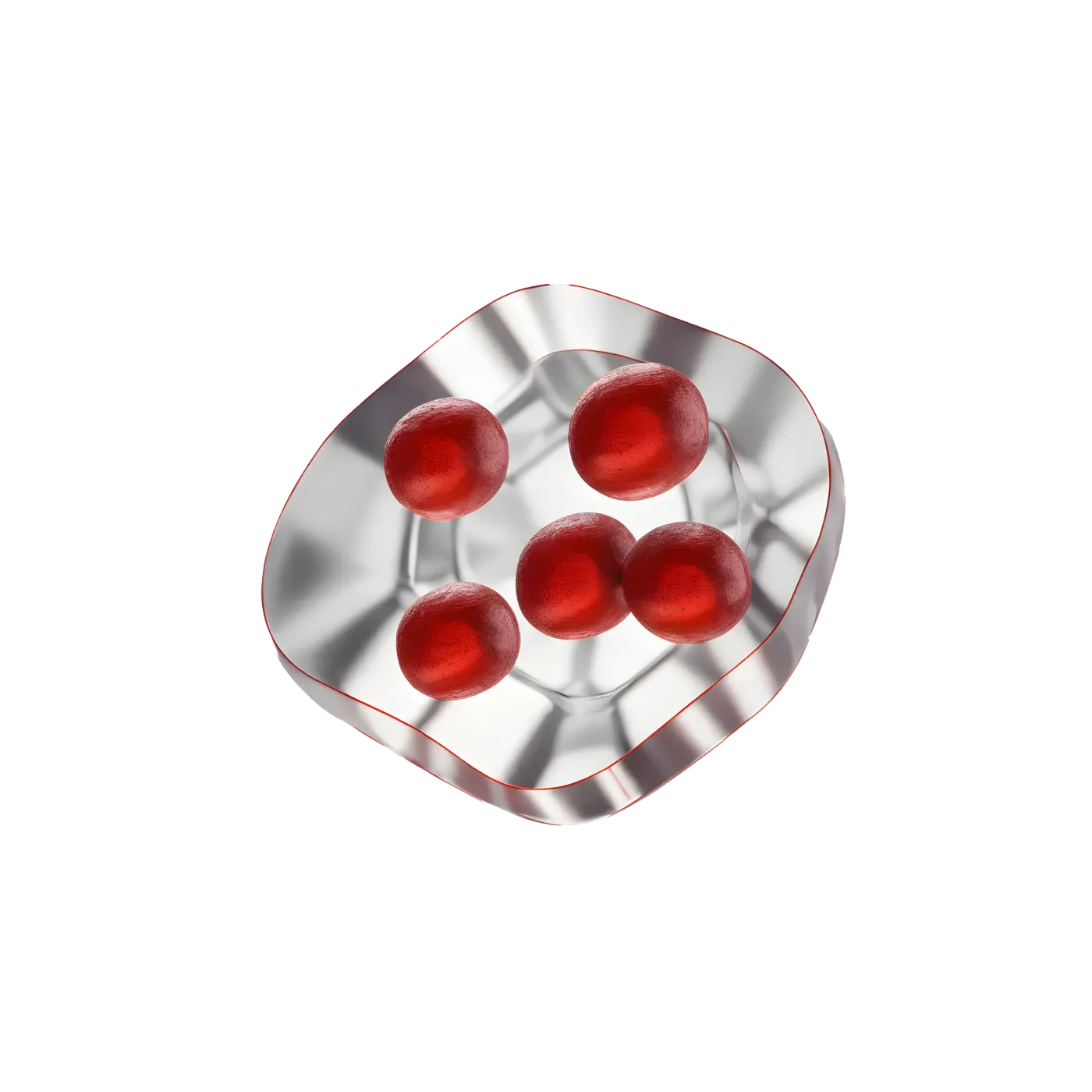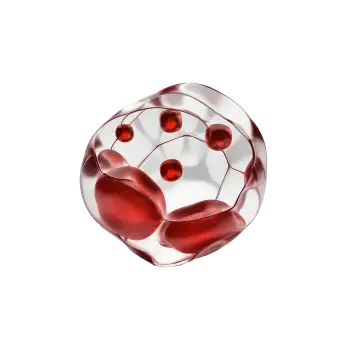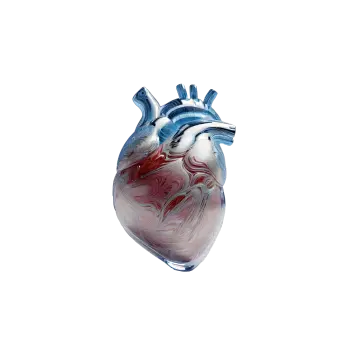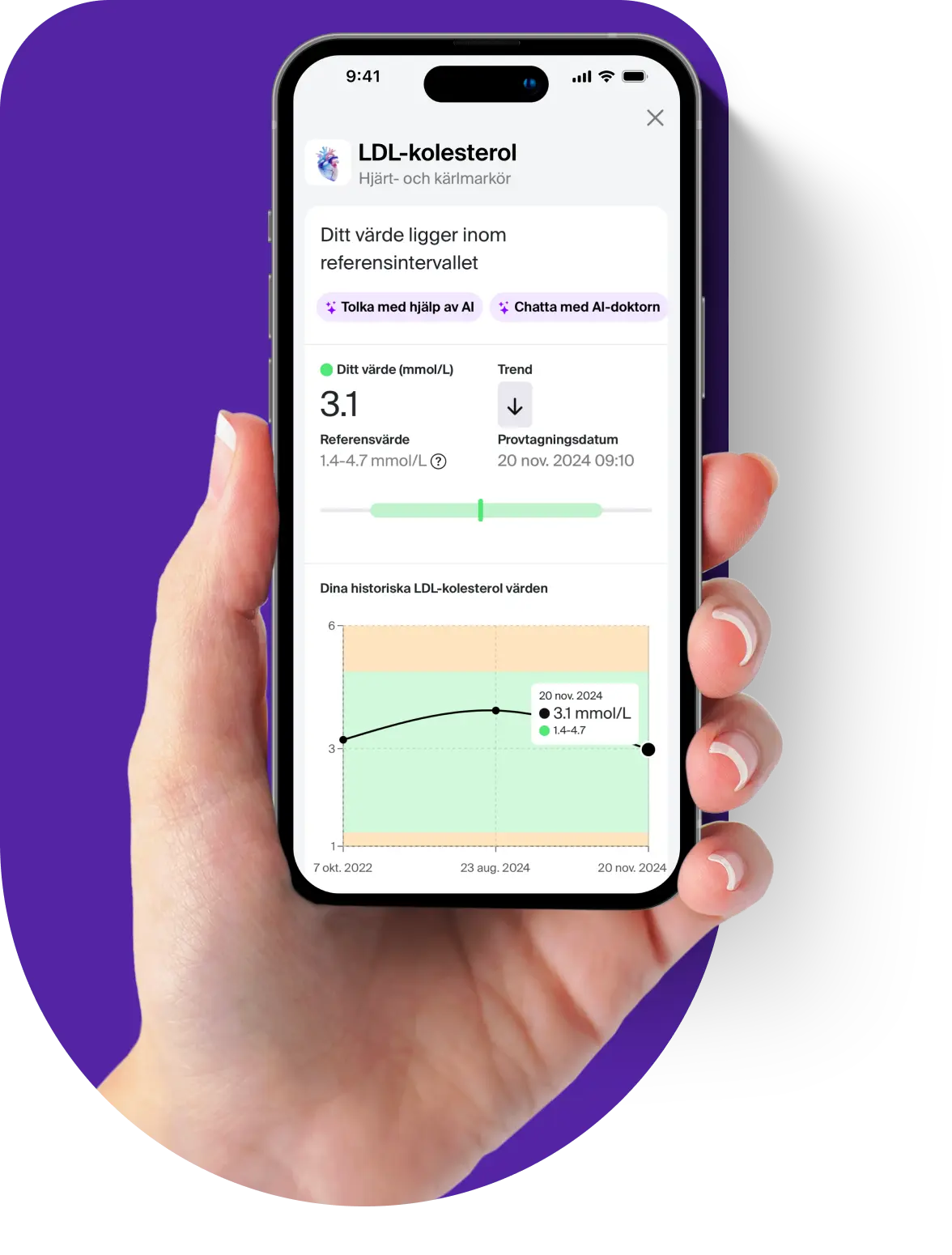Discover our new health check for the analysis of blood deficiency or anemia, an important indicator of your general health is your blood and body oxygenation. Anemia, or blood deficiency, which means a lower level of red blood cells, can affect your energy and well-being.
Symptoms of anemia may include:
- Fatigue
- Shortness of breath
- Dizziness
- Low blood pressure, especially when standing up
- High heart rate to compensate for the lower blood pressure
- Headache
- Jaundice (if the blood cells break down prematurely)
- Pale skin and mucous membranes
Blood test for those who suspect anemia
Health Check insights into your blood health status by analyzing three main causes of anemia:
- Loss of red blood cells due to bleeding
- The body's self-destruction of red blood cells
- Reduced ability to produce new blood cells due to various factors.
Analyses included in the blood test
The blood markers below provide a comprehensive overview of different aspects of the blood and its ability to transport oxygen, which is crucial to diagnosing and understanding different types of anemia.
Vitamin B12: This vitamin is essential for the production of healthy red blood cells. Lack of B12 can lead to anemia.
Folate (folic acid): Folate is necessary for DNA synthesis and plays a role in the production of red blood cells. Deficiency can cause anemia.
Iron: Iron is an important component of hemoglobin, the protein that enables the transport of oxygen in the blood. Iron deficiency can lead to various forms of anemia.
Hemoglobin (Hb): Measures the amount of hemoglobin in the blood and gives an indication of the body's ability to transport oxygen.
MCV (Mean Corpuscular Volume): Indicates the average volume of the red blood cells and can help identify different types of anemia.
MCH (Mean Corpuscular Hemoglobin): Measures the average amount of hemoglobin in each red blood cell and provides additional information about anemia.
MCHC (Mean Corpuscular Hemoglobin Concentration): Measures average concentration of hemoglobin in each red blood cell and may be useful in diagnosing anemia.
EVF (Erythrocyte Volume Fraction also called Hematocrit): Measures the proportion of the blood made up of red blood cells and provides information on blood volume.
Production of red blood cells
The blood is formed in the bone marrow, located inside large bones such as the sternum and femur. The formation of red blood cells requires iron, folic acid, and vitamin B-12 and is regulated by the protein erythropoietin (EPO) from the kidneys. A normal red blood cell has no nucleus, lives about 120 days, and can change shape to smoothly pass through small blood vessels. The amount of red blood cells is measured as hemoglobin (Hb), where normal values for women are 120-155 g/L and for men 130-170 g/L. Additional blood tests, such as MCV, MCH, MCHC, and EVF, provide information about the size, hemoglobin percentage, and percentage of red blood cells in the blood.
Understand your health better:
The Anemia check-up gives you the opportunity to identify anemia and at the same time possibly investigate the cause. By catching early signs, you can take steps to improve your blood health. Order your anemia test today and take an important step towards increased health awareness.








































